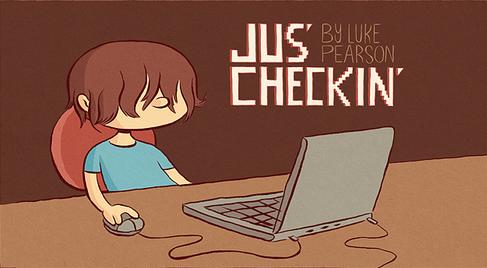Dear incoming and existing Mech Eng graduate students,
On behalf of myself and I (which doesn’t speak for much), I would like to send you an early (for the incoming students) and late (for those current students whom I haven’t met yet) yet warm welcome to UBC Engineering. It’s mid August already, and I thought I would’ve graduated by now, but I am happy to let you know that I will be around for a couple of more months to blog here, and hopefully get to know you a little bit.
Today, I would like to talk about a serious issue many students have that may be more relevant to you than you currently may think. The issue is this – how do you get to know people, to a comfortable enough level, such that you can call them up and hang out with them on a regular basis? In other words, how do you ‘get a life’ outside your lab, when the first set of people you’ll get to know and learn to rely on are the people at your lab? It may be it’s your first time in Canada/Vancouver/UBC/grad studies, and you know there are tons of things the city/campus/country has to offer that are waiting for you to explore. To put it a little more bluntly, where do you find people outside the lab???

Coming alone to UBC? Don't worry, we'll get you settled down no problem. You just need to come out a little, and be willing to get to know new people.
Your labmates, who may have been around for months/years, will probably know enough to guide you through your curious appetite to poke around different parts of your new habitat. They will probably be a good resource for you to ask questions such as “Where can I get a fob access to the lab?”, “What’s a fob?” (that was one of my questions when I first came here. lol), “Where do you usually go for groceries?”, and “Am I supposed to be in the lab 9-5 everyday?”.
But the feedback I’ve been getting from people regarding their ‘settling down at UBC’ experience as a Mech Eng grad student is that there are benefits to meeting people who are going through the same things (i.e,. the same ‘settling down at UBC phase’), who are not necessarily your labmates, and it’s also hard to get to know people outside the lab whom you can hang out with – so that you’re not always hanging out at the lab.
I happened to be lucky to have come to UBC with a whole bunch of my classmates from undergrad that I didn’t have much problem of looking for people to hang out with. But that’s not always the case for most people.
If you are anything like me — who is totally not athletic, never has the time to cleanse myself of my lab-loving workaholic tendencies, enjoys hobbies that don’t necessary require interactions with other people (i.e., watercolour painting, playing the flute, and blogging) — then you really don’t get to meet a lot of new people. I even joked with some of the MEGAers at last week’s MEGA meeting that if I were to use Facebook’s CheckIn functions a lot more, and checked in at the places I go to everyday, then my Facebook wall would look something like this:
AJung has checked in at the Lab.
AJung has checked in at Home.
AJung as checked in at the Lab.
AJung has checked in at Starbucks (2 min. walk from the lab).
AJung has checked in at the Lab.
AJung has checked in at Home.
…
AJung has checked in at the Lab.

Funny, yet sadly true.
So where do you meet new people who will eventually become your social circle. And if you have a social circle already, how do you diversify your social circles?
MEGA is going to do its best to bring new and current students together during the orientation week, but I think people would definitely benefit from taking advantage of some of the social things during the first couple of months – while things are not so busy, you’re loaded with coursework rather than research work, and everything is new and exciting.
 First, check out MEGA – Mech Eng Grad Association. You’ve come to UBC to become the world’s most sought-out researcher in your field, and you don’t have time to get involved in student associations. No worries, I get it. But as grad students, there comes a time when you’d like to talk about your supervisors without the presence of them (Mike & Elizabeth: don’t worry, I don’t say anything bad about you guys.. eh hem..!), and need someone to echo your heartache over Mech 598 seminars, get the latest news about deals on Groupon that you don’t want to miss out – i.e., ‘get a life’ the grad student way. MEGA runs weekly coffee socials, so that you don’t have to get involved in the administrative stuff behind the association, but you come out to chill, eat cookies, and drink coffee/tea/whatever is there for free. It’s definitely a good way to meet people within the department I think. MEGA has its own Facebook page, website, a Google Calendar, and a mailing list, so that you can stay informed of our next beach party, hike, free pizza/movie nights, and more.
First, check out MEGA – Mech Eng Grad Association. You’ve come to UBC to become the world’s most sought-out researcher in your field, and you don’t have time to get involved in student associations. No worries, I get it. But as grad students, there comes a time when you’d like to talk about your supervisors without the presence of them (Mike & Elizabeth: don’t worry, I don’t say anything bad about you guys.. eh hem..!), and need someone to echo your heartache over Mech 598 seminars, get the latest news about deals on Groupon that you don’t want to miss out – i.e., ‘get a life’ the grad student way. MEGA runs weekly coffee socials, so that you don’t have to get involved in the administrative stuff behind the association, but you come out to chill, eat cookies, and drink coffee/tea/whatever is there for free. It’s definitely a good way to meet people within the department I think. MEGA has its own Facebook page, website, a Google Calendar, and a mailing list, so that you can stay informed of our next beach party, hike, free pizza/movie nights, and more.
Second, go do the orientation stuff. I know I know… some of the things may sound boring or ‘not your thing’ for you. But just do it. Just for the orientation week. Because otherwise, you may never get the chance to do the potentially awkward stuff with strangers, which means the strangers will remain strangers to you – and not your buds. GSS usually plans some epic events, such as the boat cruise (which I thoroughly enjoyed).

A pic from Creating Connections 2007. I am in this picture somewhere, and so are a number of my current friends who were mere strangers back then.
Third, if you are a lady engineer, like myself, consider going to the Creating Connections 2.0 event. They ran it a couple of years ago when I first came to UBC, and it was an epic event to meet people, not only grad students, but also industry people and professors who are females and share the same pains and pleasures of being a lady engineer in Canada. The best thing about it is that it’s filled with opportunities to meet other lady engineers at other departments, like ECE, Civil, etc., while getting inspired by fabulous guest speakers who gives you these straight-from-experience words of wisdom.
Lastly, share your passion with others. There are good deals throughout the city that are tailored to suit your tastes and hobbies. For example, the Access Pass at the Vancouver Symphony Orchestra is one thing that I think all students should have, because they allow you to go to these fabulous concerts at the Orpheum for only $10, which is uber cheap – for those of you who dig classical music like I do. And see? You wouldn’t have known about the deal if I hadn’t told you about it. So please feel free to share your passion – whether it be free leftover food at a seminar you attended, or a cheap kayaking/ski trip you came across – with other students through MEGA (you can send emails to mega@mech.ubc.ca and someone — i.e., me, at the moment — will help you forward it to the entire Mech grad students) or leave a note on Facebook and be open to fellow students joining in on sharing your passion.
Along that line of thought, Josh Groban is coming to town on Aug. 30th and there’s student discount at ticketmaster. Woot woot!
Anywho, I hope all the new students have a safe trip to Vancouver, and don’t go through too much trouble finding housing. If you have any questions/comments, feel free to post them here. I’d love to hear from you! 😀
 Follow
Follow

 Time spent making choices are deceivingly exciting yet seriously dreadful.
Time spent making choices are deceivingly exciting yet seriously dreadful.

 Sometimes when you find yourself hesitating to make a decision, that’s because you can probably live with any of the available options (i.e., too much freedom on your hands). If there was a clearly bad choice, and a clearly good choice, you won’t have to ask too many questions before you make your decisions isn’t it?
Sometimes when you find yourself hesitating to make a decision, that’s because you can probably live with any of the available options (i.e., too much freedom on your hands). If there was a clearly bad choice, and a clearly good choice, you won’t have to ask too many questions before you make your decisions isn’t it?